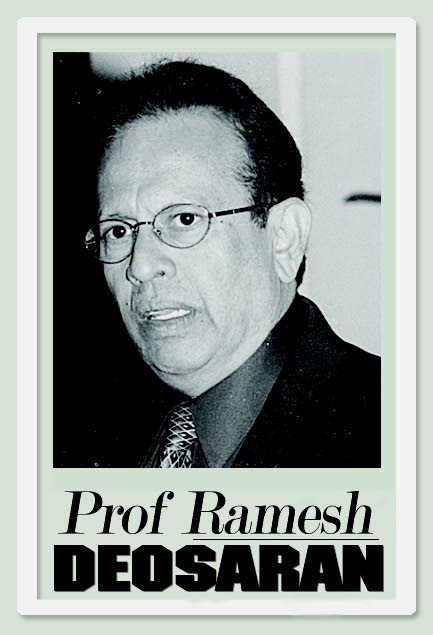The proper authority

Authority. This means “the power or right to enforce obedience; a person or body having authority, especially political or administrative.” (Concise Oxford)
A public debate over the performance of the Commissioner of Police (CoP) Gary Griffith was triggered by his popular “one shot, one kill” stance and how he is accountable. For the public interest, I revisit the proper authority which governs the commissioner now facing some top-line critics with a frightened population between.
The Constitution (Section 123 as amended) states: "The PSC (Police Service Commission) shall have power to appoint the CoP and Deputy CoP, to remove such officers and exercise disciplinary control over them, to monitor their efficiency and effectiveness, to prepare an annual performance appraisal report on them, to hear and determine appeals from decisions of the commissioner or of any person he delegates to do so as a result of disciplinary proceedings he has brought against a police officer." Of course, the PSC's power to appoint is subject to the approval of Parliament.
At the same time, the CoP has “complete power to manage the Police Service and is required to ensure that the human, financial and material resources available to the service are used in an efficient and effective manner.” (Section 123A(1)). The CoP also has powers to appoint, transfer, remove from office, promote and confirm appointments, exercise disciplinary control over police officers, except the deputies. A troublesome matter emerged around 2012 when Dwayne Gibbs and Jack Ewatski were commissioner and deputy commissioner respectively. I was then PSC chairman.
An important question arose over the extent of financial control which the CoP has, for example, in purchasing a light airplane and for what use, especially given the $1 million limit for such accounting officer. The PSC raised questions. Gibbs hired the late Dana Seetahal, SC to defend him. On behalf of the PSC, Russell Martineau, SC, responded by pointing out several authorities, including the constitutional words “resources available to the service,” the Defence Force Act, the financial limit, etc. Ms Seetahal eventually agreed with Mr Martineau. The PSC was right.
Five things here: (1) The Minister of National Security has constitutional authority to develop relevant policies for the CoP but cannot order or discipline the CoP. (Section 85). (2) It is the minister and cabinet who are directly accountable for crime and national security to Parliament (Section 75). (3) The National Security Council (NSC), headed by the Prime Minister, may ask for reports from the CoP but does not have constitutional authority over the CoP. (4) The Police Manpower Audit Committee Report (2017), noting that effective crime-fighting cannot depend exclusively on written law, recommended harmonious, regular meetings between the NSC, CoP and minister in developing and improving policies and support.
(5) If the minister, Prime Minister, NSC or Parliament itself, finds strong dissatisfaction or serious complaint over the work or behaviour of the CoP, such dissatisfaction or complaint may be properly submitted to the PSC. Similarly, if any organisation or citizen finds strong dissatisfaction or complaint with the CoP, such may also be properly submitted to the PSC. In the case of serious misbehaviour or criminal acts by the CoP, such complaints may also be submitted to the Police Complaints Authority. The courts are also open for further relief or appeal.
Meanwhile, the PSC itself has constitutional opportunities to be proactive and even helpful to the CoP as well. For example, the CoP is required to submit a written report to the PSC every six months on his management of the Police Service (Section 123 (6)). Further, the PSC has additional powers to seek “a special report at any time on any matter relating to the management of the Police Service,” and seek documents regarding financial, legal, and personnel matters in relation to the Police Service “to which the CoP shall respond in a timely manner.” (Section 123(8))
Among the stipulated qualifications for appointing a CoP or Deputy CoP are: leadership and management skills, communication skills, commitment to the organization, professional integrity and vision. (Legal Notice 101)
Alongside “proper authorities,” however, are civic voices that also have lawful constitutional rights. Given the serious state of crime, it would be a national good if both the proper authorities and civic society find common ground against the common enemy – crime.

Comments
"The proper authority"